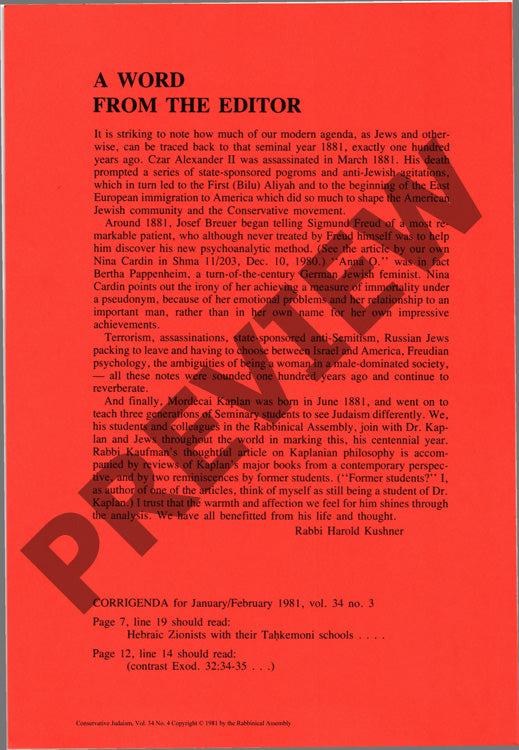A Word from the Editor
Couldn't load pickup availability
This editorial examines the historical significance of 1881 as a pivotal year whose events continue to influence contemporary Jewish and broader societal agendas. Using a historical analytical approach, the author traces multiple interconnected developments that originated in this seminal year. The analysis reveals that the assassination of Czar Alexander II in March 1881 catalyzed state-sponsored pogroms and anti-Jewish persecution, subsequently triggering the First Aliyah to Palestine and initiating large-scale East European Jewish immigration to America, which fundamentally shaped American Jewish communities and the Conservative movement. Concurrently, Josef Breuer's discussions with Sigmund Freud regarding patient "Anna O." (Bertha Pappenheim) laid foundational groundwork for psychoanalytic methodology. The editorial highlights the irony that Pappenheim, a prominent German Jewish feminist, achieved posthumous recognition through her psychiatric case rather than her substantive achievements. Additionally, 1881 marked the birth of Mordecai Kaplan, whose revolutionary theological perspectives influenced three generations of Jewish Seminary students. The author concludes that themes emerging from 1881—including terrorism, state-sponsored antisemitism, Jewish migration decisions between Israel and America, Freudian psychology, and gender dynamics in patriarchal societies—remain relevant contemporary issues, demonstrating the enduring impact of this transformative year.

More Information
-
Physical Description
-
Publication Information
Published 1981
ISBN
-
Publication Credits
Harold Kushner

